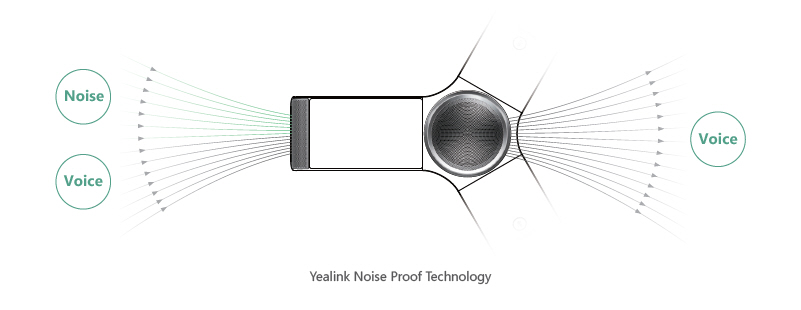Introduction
In today's fast-paced and ever-evolving business landscape, remote work and virtual offices have become increasingly popular. With the advancements in technology, companies are now able to embrace this flexible work environment and leverage the benefits it offers. One such technological advancement that has revolutionized remote work is Voice over Internet Protocol (VoIP) phones. In this article, we will explore the advantages of VoIP phones for remote work and virtual offices.
The Advantages of VoIP Phones for Remote Work and Virtual Offices
VoIP phone services offer numerous advantages for businesses operating in a remote work or virtual office setting. Let's delve into some of the key benefits:
1. Cost Savings with VoIP Phone Service
One of the most significant advantages of using VoIP phones for remote work and virtual offices is VoIP phone system cost savings. Traditional phone systems can be expensive to set up and maintain, especially when multiple lines are required. However, with VoIP phone service, businesses can eliminate the need for separate phone lines as calls are made over the internet. This significantly reduces infrastructure costs and allows businesses to allocate resources to other critical areas.
2. Scalability and Flexibility
Another advantage of VoIP phones is their scalability and flexibility. As businesses grow or downscale, they can easily adjust their VoIP phone system to accommodate changing needs. Adding or removing lines is a breeze with VoIP, allowing businesses to scale their communication infrastructure without any hassle. Additionally, employees can use their existing devices such as smartphones or laptops to make calls, providing flexibility in terms of device usage.
3. Seamless Communication across Geographical Locations
With traditional phone systems, communication between different geographical locations can be challenging and costly. However, VoIP phones overcome this hurdle by leveraging the power of the internet. Whether your team members are located in different states or even countries, VoIP phones enable seamless communication without incurring long-distance charges. This advantage is particularly beneficial for businesses with remote teams or virtual offices spread across the globe.
4. Enhanced Collaboration and Productivity
VoIP phone systems offer a range of features that enhance collaboration and productivity in a remote work or virtual office setup. Features such as call forwarding, voicemail to email voip phone service transcription, and video conferencing enable employees to collaborate effectively regardless of their physical location. This not only improves communication but also boosts overall productivity and efficiency within the organization.
5. Advanced Call Management Features
VoIP phone systems come equipped with advanced call management features that can streamline business operations. Features such as call routing, auto-attendants, and interactive voice response (IVR) systems ensure that calls are directed to the right departments or individuals, improving customer service and reducing call wait times. These features are especially valuable for businesses with high call volumes or complex call handling requirements.
6. Integration with Other Business Tools
Integrating VoIP phone systems with other business tools such as customer relationship management (CRM) software can further enhance operational efficiency. By integrating VoIP phones with CRM systems, businesses can streamline workflows, automate tasks, and gain valuable insights into customer interactions. This integration enables a seamless flow of information between different departments, leading to improved customer satisfaction and better decision-making.

Frequently Asked Questions
What is a VoIP phone system? A VoIP phone system allows users to make calls over the internet rather than traditional telephone lines. It converts voice signals into digital data packets that are transmitted over an IP network.
Is a VoIP phone system suitable for small businesses? Yes, VoIP phone systems are highly suitable for small businesses due to their cost-effectiveness and scalability. They provide small businesses with the flexibility to grow their communication infrastructure as needed.
Can VoIP phones be used for video conferencing? Yes, VoIP phones often come with video conferencing capabilities, allowing users to conduct virtual meetings and collaborate effectively.
Are VoIP phone systems secure? Yes, VoIP phone systems can be secured using various encryption and authentication protocols to protect sensitive information during transmission.
How reliable are VoIP phone systems? VoIP phone systems can be highly reliable if implemented correctly. Factors such as network stability, bandwidth availability, and quality of service (QoS) measures can impact the reliability of the system.
Do I need special equipment to use VoIP phones? While it is possible to use dedicated VoIP phones, many businesses leverage softphones, which are software-based applications that allow users to make calls using their computers or smartphones.
Conclusion
VoIP phones have emerged as a game-changer for remote work and virtual offices. The advantages they offer, including cost savings, scalability, seamless communication, enhanced collaboration, advanced call management features, and integration with other business tools, make them an indispensable tool for modern businesses. By embracing VoIP phone systems, companies can unlock the full potential of remote work and create a highly connected and productive workforce that spans across geographical locations. So if you're considering adopting remote work or establishing a virtual office setup, don't overlook the numerous benefits that VoIP phones bring to the table.